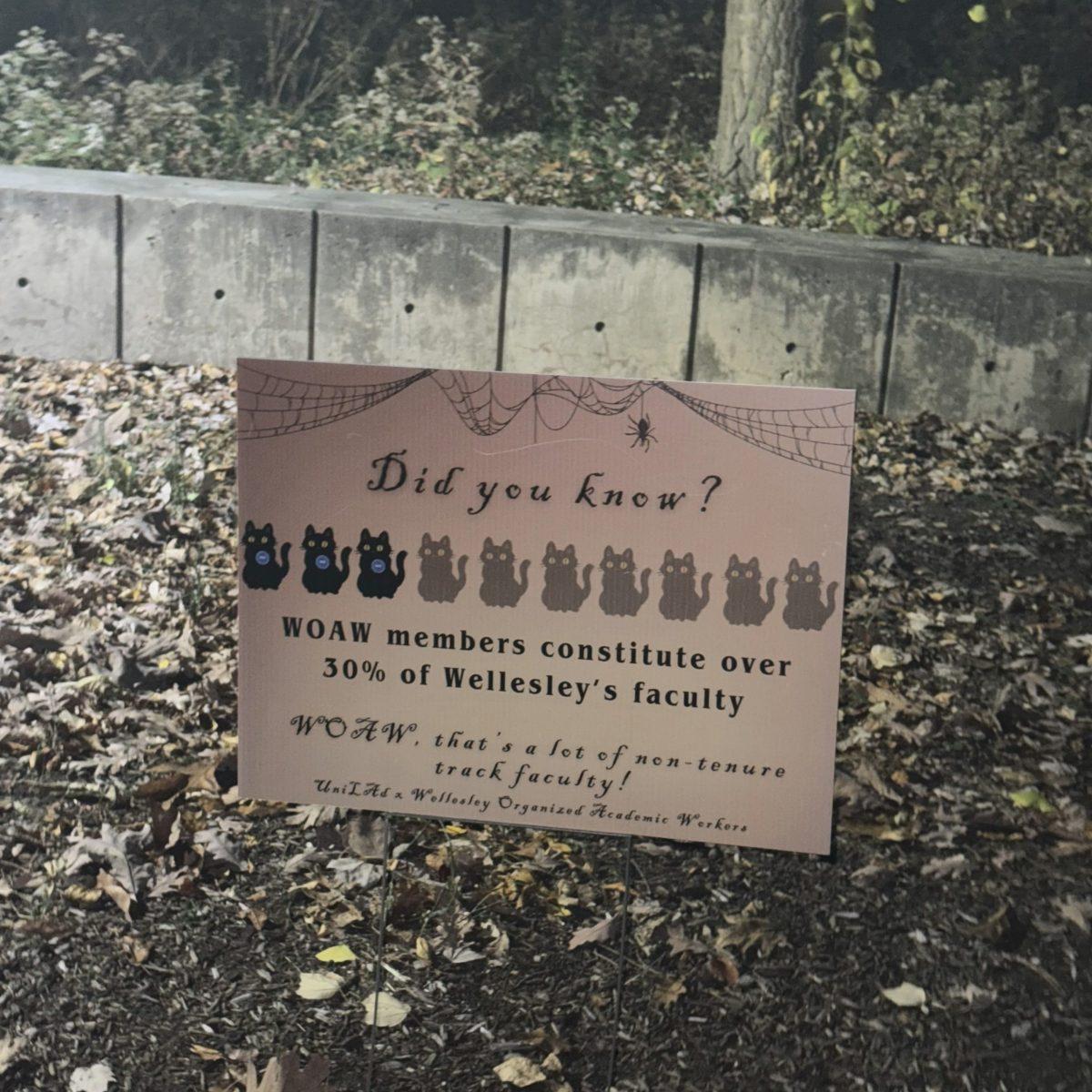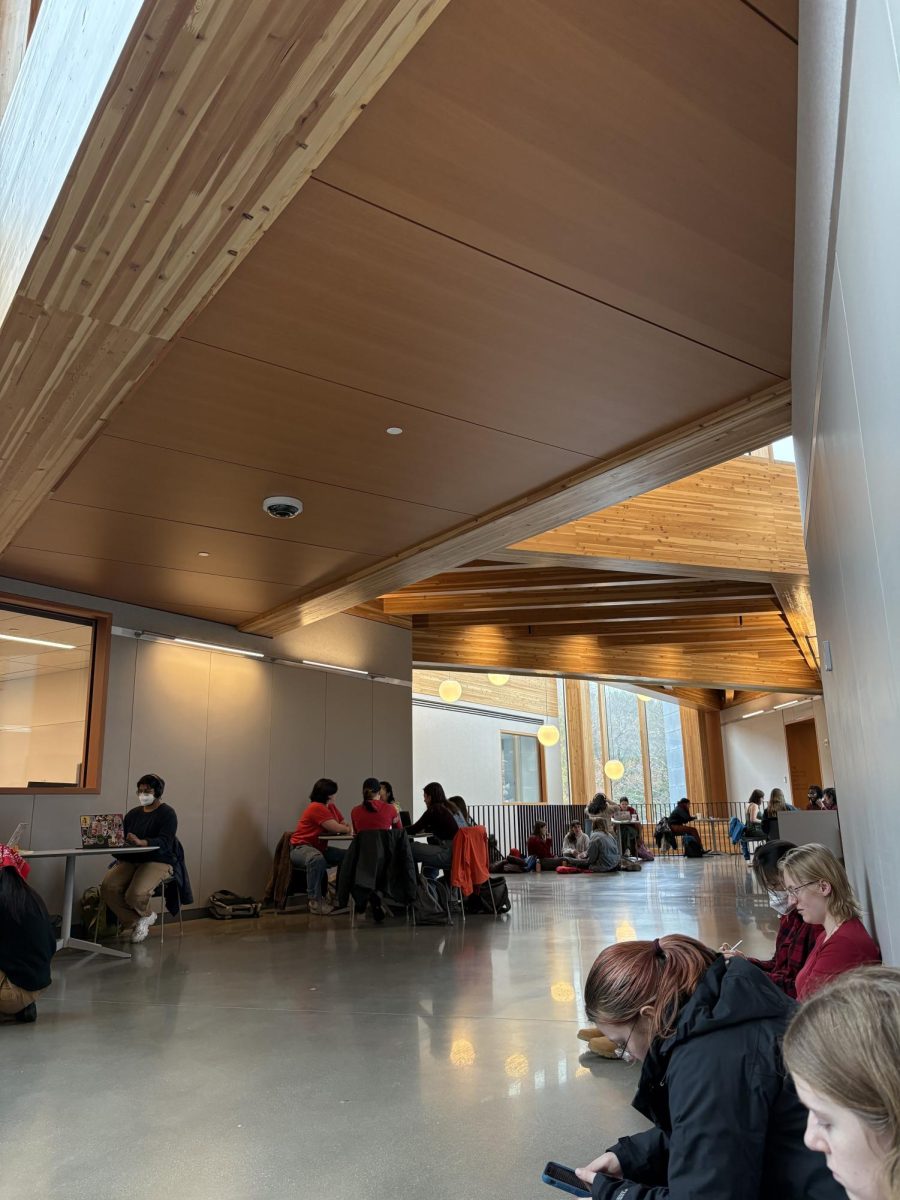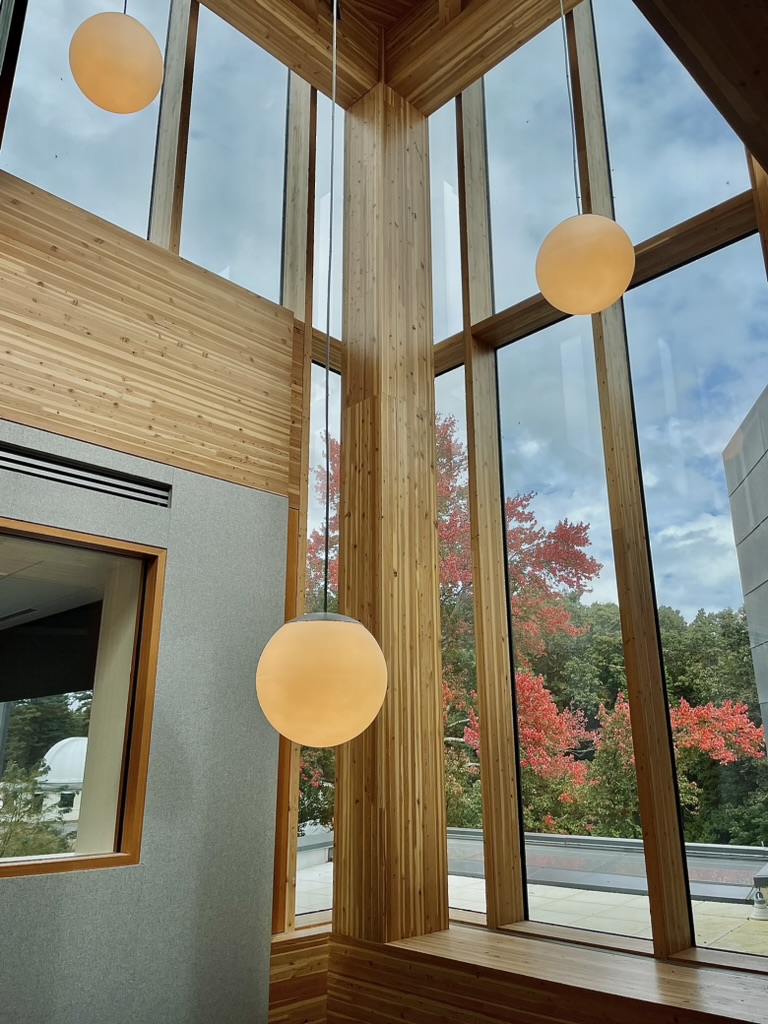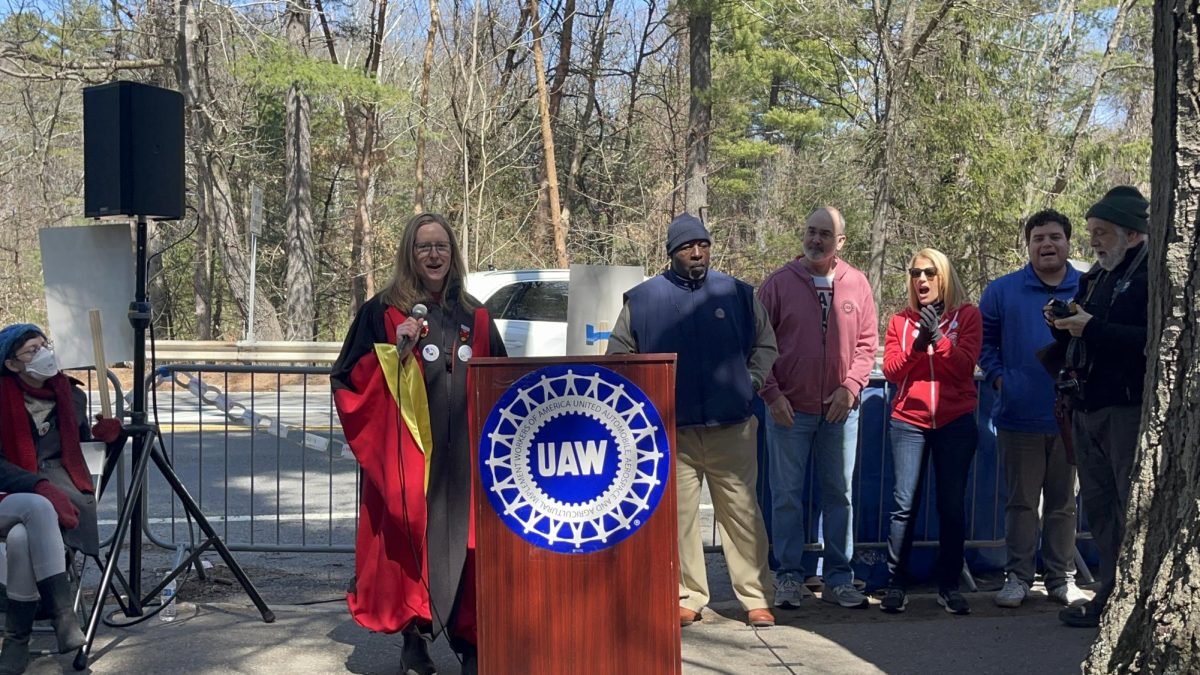On Thursday, Oct. 25, over 60 students and staff members crowded a lecture room in Founders Hall for the Wellesley Organized Academic Workers (WOAW)’s teach-in.
A bench was moved from the hallway to create more seating, while others sat on the floor in anticipation of the WOAW’s educational session and bargaining updates. Signs WOAW made about the teach-in are also placed around campus.
With the tagline “Faculty working conditions are student learning conditions,” the WOAW union presented to fellow members, students and other members of the faculty and staff on current bargaining goals and status updates.
One goal of this teach-in was to inform students of the WOAW’s mission and its bargaining goals. Speakers included union members, Independent Maintenance and Service Employees Unions of America (IMSEUA) members, and representatives from the United Auto Workers Union (UAW), with which the WOAW is affiliated.
A union member stated that the faculty had “claimed a seat at the table” by unionizing. Anne Brubaker, a senior lecturer in the writing program, also said that non-tenure track faculty had “already won because we’ve won a union.“
Hannah Grimmet ’25 works closely with the union team to advocate for the bargaining and student involvement with the union. Grimmet is the founder of UniLAd, the student-led Union and Labor Advocacy Taskforce, a subsection of Wellesley for the Abolition of Militarism and Incarceration (WAMI).
“I hope that students gain … a remedy to that issue of wanting to support the Union but not knowing how, or not knowing the specific reasons of why they should be supporting,” she said about the Union’s goal for the teach-in.
The teach-in outlined the Union’s goals and their updates, which can be accessed through their proposal tracker. The meeting dedicated time to show community members how to review this spreadsheet and understand how to track agreements/amendments in proposal language over time.
Members discussed the recent “wins” for the union, including what was described as “one of the strongest health and safety articles in higher ed.” This article, tentatively agreed upon on Sept. 24, includes information about the communication and regulation of health and safety concerns and policy on campus. Other agreements included the recent memorandum about including non-tenure track faculty in key research programs and streamlining non-tenure track titles across departments.
The teach-in continued to emphasize the Union’s ongoing proposal to include a faster, union-centered grievance process focused on supportive measures. The open letter in support of the proposal is signed by over 600 faculty, students and members of the college community.
In the meeting, members commented on frustrations during bargaining about this proposal, including with the College’s lawyer. One presented their testimony about discrimination and harassment they had presented to the College in a previous bargaining session.
This proposal, together with disagreement on faculty’s workload, have become “sticking points,” the Union repeatedly expressed online and at the teach-in.
According to Wellesley College’s published bargaining update for the Oct. 22 bargaining session, the College claimed that “the WOAW-UAW is asking to have more rights and a different process than the rest of our community when it comes to the initial processing of claims of discrimination.”
WOAW members, instead, argued that their proposals provide crucial options for affected members and can be adopted by the wider community.
“Why wouldn’t Wellesley take our good ideas and implement them across campus?” Katie Hall, a distinguished senior lecturer in Physics, said in the meeting.
The Union and the College still struggled to find common grounds on workload and titles. The College has proposed workload increases from four to five classes a year for full-time non-tenure track faculty, as well as the removal of course enrollment caps for non-tenure track faculty, according to a proposal draft released on the WOAW website. While the College has agreed to streamline the titles of non-tenure track faculty, standardizing them across departments, the exact title of faculty has yet to be agreed upon.
After the meeting, attendees were encouraged to join WOAW members on a “Solidarity Stroll” from Founders Hall to Alumnae Hall, where the Board of Trustees of the College were expected to have dinner. People chanted “who’s got my back?/we’ve got your back” and “the faculty united will never be divided” on the way over to the hall, where union members placed a pro-union lawn sign in the green in front of the ballroom. Trustees had not yet arrived for dinner and attendees did not linger after the stroll.
This teach-in demonstrates part of UniLAd and the WOAW’s continuous effort toward student and community solidarity. UniLAd plans to host more educational events in the future, as well as community-focused events for students and faculty to socialize.
Grimmett stressed the importance of community support for the union: “The college immediately recognizes … that they are contending with more than just five faculty members sitting across from them at the bargaining table. They’re negotiating with an entire community.”
Contact the editors responsible for this story: Valida Pau, Sazma Sarwar, Lyanne Wang




